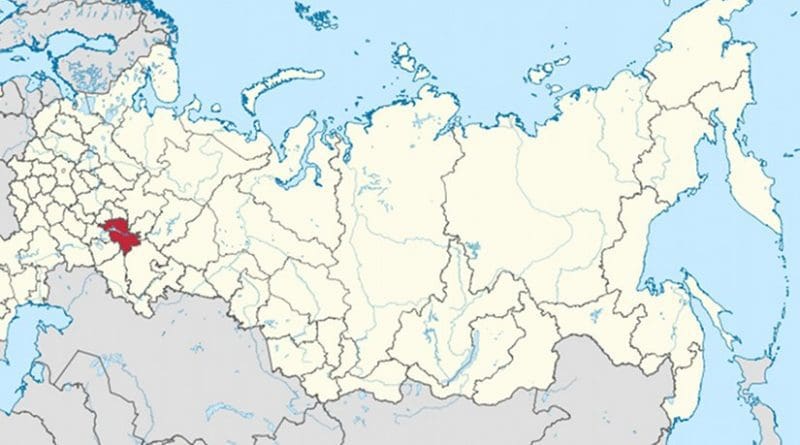Moscow To Allow Tatarstan To Retain Post Of President But Not Have Treaty – OpEd
By Paul Goble
Moscow will allow Tatarstan to retain the position of president until Rustam Minnikhanov’s term runs out in 2020, but it won’t extend the power-sharing agreement between Moscow and Kazan that runs out this month, today’s Kommersant reports, citing an unnamed source close to the Russian leadership.
The future of the title and other arrangements in Tatarstan that had been governed by the power-sharing treaties in the past are to be the subject of a bilateral commission with representatives from both the Russian government and the Tatarstan government, the source says (kommersant.ru/doc/3356528).
The source said that the Kremlin had reached this decision on the basis of an appeal from the Tatarstan State Council earlier this month that had called for talks about the provisions of the power-sharing agreement but that did not specifically call for its extension or replacement, the Moscow paper says.
In the discussion of that appeal, Farid Mukhametshin, speaker of the Tatarstan State Council, said that without the extension of the treaty there would be “legal collisions” between Moscow and Kazan and htat any changes in the arrangements that the power-sharing accord had specified would require a referendum in the republic to approve constitutional changes.
Rafael Khakimov, vice president of Tatarstan’s Academy of Sciences and former advisor to President Mintimer Shaymiyev, told Kommersant that the Kremlin proposal to extend the position of president of the republic was acceptable and talks could certainly take place to discuss extending it further.
But he pointed out that what Moscow is doing violates federal law which called of retitling the office of president of Tatarstan in 2016. Obviously, Khakimov continued, there will be many issues that will now be “unregulated,” including in particular the passport inserts Tatarstan now has, and will require negotiations.
The treaty created a format for both sides to operate. “It didn’t interfere with either side for ten years,” and thus the question remains, why should it not be extended as Tatarstan wants?
Moscow undoubtedly has concluded that by giving Kazan half a loaf, it can push the problem of relations between the center and Tatarstan down the road even as it continues to chip away at regional and republic rights in particular and Russian federalisms in general. But there are three reasons why the central authorities are almost certainly wrong.
First, these talks are going to attract the attention of officials in other republics and regions and thus open the door to discussions about greater rights for the federal subjects whether Moscow wants that or not. For 20 years, Tatarstan has stood as an exception. By challenging that, Moscow will make other republics want to gain what Kazan already has.
Second, Kazan can be counted on to mobilize the Tatar nationalists in its population to try to put more pressure on Moscow to make concessions. With the treaty, that strategy was precluded. Now, it is the obvious one. As a result, more clashes are certain to occur in the coming months.
And third, ethnic relations within Tatarstan, which have been exemplary up to now, are likely to suffer. Some Russian nationalists there have already called on Moscow take a tougher line (ruskline.ru/news_rl/2017/07/14/ne_dopustit_poowreniya_regionalnogo_ekstremizma/). They will be angry by what they will see as a sell-out and that will cause problems too.


I hate to say this, but the crooks in the CIA will have fun with this, if the author is correct in his assessments made at the end of the article, and if the CIA has been able to penetrate this region of the world. I hope not. Brian Ghilliotti